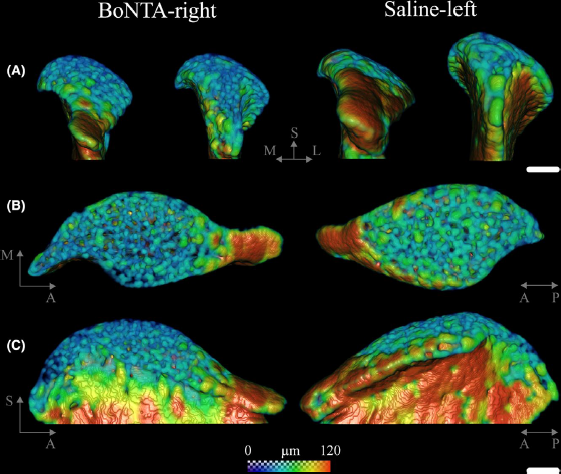Masseter muscle atrophy impairs bone quality of the mandibular condyle but not the alveolar process early after induction
Masseter muscle function influences mandibular bone homeostasis. As previously reported, bone resorption markers increased in the mouse mandibular condyle two days after masseter paralysis induced with botulinum toxin type A (BoNTA), followed by local bone loss.
This study aimed to evaluate the bone quality of both the mandibular condyle and alveolar process in the mandible of adult mice during the early stage of a BoNTA‐induced masseter muscle atrophy, using a combined 3D histomorphometrics and shape analysis approach.

After 2 weeks, masseter mass was significantly reduced (P‐value <0.001). When compared to Saline‐left and untreated condyles, BoNTA‐right condyles
showed significant bone loss (P‐value <0.001) and shape changes. No significant bone loss was observed in the alveolar processes of any of the groups (P‐value >0.05).
Condyle bone quality deteriorates at an early stage of BoNTA‐induced
masseter muscle atrophy, and before the alveolar process is affected. Since the observed bone microstructural changes resemble those in human temporomandibular joint degenerative disorders, the clinical safety of BoNTA intervention in the masticatory apparatus remains to be clarified.